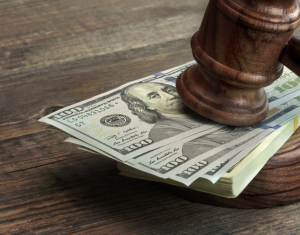Atlanta Attorney for Victims of Physical Assault & Violent Attacks
Table of Contents
- What Is a Physical Assault Injury Case in Georgia?
- Intentional Tort Claims for Physical Assault Victims
- Proving Negligence & Causation in a Physical Assault Case
- Compensation and Damages Recoverable in a Physical Assault Case
- Types of Physical Assault Cases We Handle
- Further Reading on Physical Assault
An individual can be the victim of a physical assault in a variety of ways. Oftentimes, these are exemplified by what we would consider fights. To resolve all matters that were caused by the attack, multiple trials may be necessary; one for the criminal proceeding and one for the civil proceeding. The civil proceeding is where any funds to assist you in recovery and compensate you for your injuries will come from.
What Is a Physical Assault Injury Case in Georgia?
As our Atlanta personal injury lawyers can explain, there are situations in which you can sue someone for physical assault or inappropriate contact. However, it will depend heavily on the circumstances. Some elements that constitute a physical assault case that we may consider include:
- How seriously the victim was physically hurt.
- Whether the person who assaulted/touched the victim was in a position of trust.
- Whether the person who assaulted/touched the victim was on-the-job when the incident happened.
- Whether the incident occurred on the property of a business/individual with a duty to protect the victim, and if so, whether there were prior violent incidents that occurred on-site that made this one foreseeable to the business/property owner.
Filing Intentional Tort Claims for Physical Assault Victims in Georgia
An intentional tort claim is one way to sue someone who physically assaults or has inappropriate contact with you.
In general, a tort is a civil claim stemming from a wrongful act that injures someone or damages their property. An intentional tort occurs when the act that causes injury is deliberate. It requires the element of intent.
Intentional torts can include:
- Assault.
- Battery.
- Sexual assault.
- Wrongful death.
- False imprisonment.
- Defamation.
- Malicious prosecution.
- Emotional distress.
Here, we’re just going to focus on assault and battery. An assault is a threat or attempt of bodily harm, while battery is the intentional touching of someone without his or her consent. In Georgia, the law presumes that each person has the right to be free from unwanted physical contact from others.
Defenses to intentional tort claims include denial (denying that the defendant did what the plaintiff alleges), justification (admitting to the act, but denying the acts were wrong), and mitigation (admitting the conduct was wrong, but arguing for reduced damages due to a lack of malice, bad faith, or intent to cause harm).
One of the most significant problems in pursuing claims for intentional torts is that criminal acts and intentional wrongs aren’t generally covered by insurance policies. This means the plaintiff must collect damages directly from the defendant’s assets. In many cases, the attacker’s personal assets are not sufficient enough to justify pursuing a claim. That is why employer liability and third-party liability claims for physical assault or inappropriate contact are more common.
Further Reading: Examples of Negligent Security that Lead to Serious Injury
Proving Negligence & Causation In Physical Assault Injury Cases
In order to establish negligence was a factor in your physical assault case, you must show that:
- A duty of care existed, and the defendant owed you a level of responsibility
- The defendant breached the duty of care and responsibility
- That breach directly caused your injuries
- You suffered damages that resulted from the breach of care
The evidence you present in your physical assault case should prove all four of these elements. Photographs, police reports, earnings statements, and other relevant documentation should demonstrate the defendant’s breach of duty. Forensic evidence, such as video surveillance and witness statements from scene of the accident will support your case as well.
Statute of Limitations for Physical Assault Injury Cases
Under GA Code § 9-3-33, the statute of limitations holds that injured parties have two years to bring personal injury claims forward. After two years, a court will dismiss your claim. Oftentimes, insurance companies will engage in stalling techniques to avoid paying you anything. It is important to begin working with a Georgia personal injury attorney experienced in dealing with physical assault cases as soon as possible to build your case.
Further Reading: Understanding Foreseeability in Negligence & Premises Liability
Damages and Compensation Recoverable In Physical Assault Injury Cases
Serious injuries can and do occur in violent attacks. You may need extensive medical care, or even long-term care after an assault. Fortunately, you may be able to recover some of those losses, including:
- Medical expenses, including emergency care and ongoing treatments
- Lost wages
- Reduced or loss of earning capacity
- Long term disability
- Property damage
- Pain and suffering
- Diminished quality of life
If you or a loved one has been badly injured due to a driver’s negligence and would like to discuss what possible damages you could recover, contact Apolinsky & Associates, LLC, for a case evaluation.
Further Reading: What is Pain and Suffering and How Is Compensation Value Calculated?


















